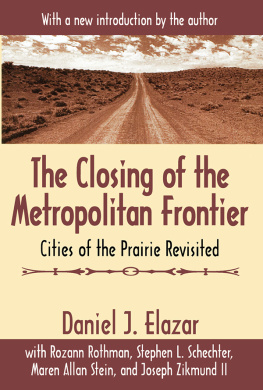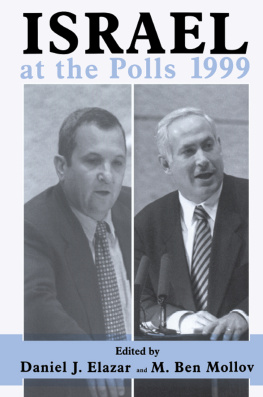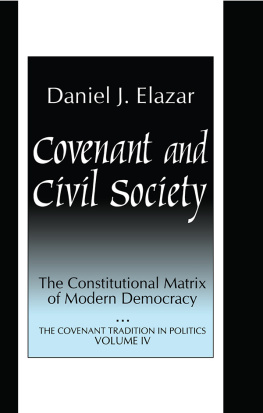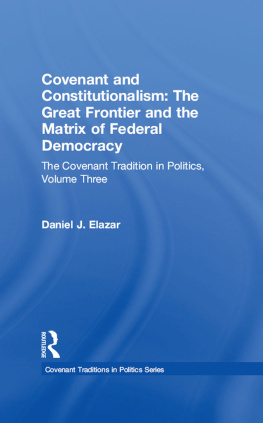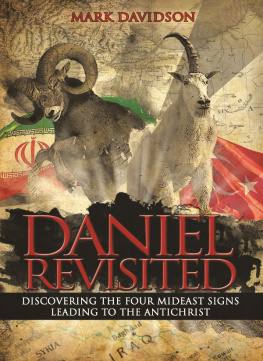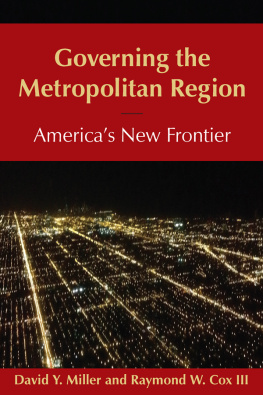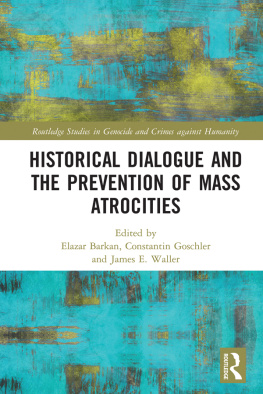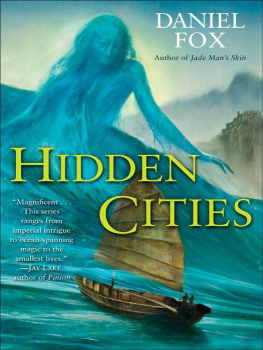The Closing of the Metropolitan Frontier
The Closing of the Metropolitan Frontier
Cities of the Prairie Revisited
DANIEL J. ELAZAR
With Rozann Rothman, stephen L. Schechter, Moren Allan Stein, and Joseph Zikmund II
With a new introduction by the author
Originally published in 1986 by University of Nebraska Press
Published 2002 by Transaction Publishers
Published 2017 by Routledge
2 Park Square, Milton Park, Abingdon, Oxon 0X14 4RN 711
Third Avenue, New York, NY 10017, USA
Routledge is an imprint of the Taylor & Francis Group, an informa business
New material this edition 2002 by Taylor & Francis.
All rights reserved. No part of this book may be reprinted or reproduced or utilised in any form or by any electronic, mechanical, or other means, now known or hereafter invented, including photocopying and recording, or in any information storage or retrieval system, without permission in writing from the publishers.
Notice:
Product or corporate names may be trademarks or registered trademarks, and are used only for identification and explanation without intent to infringe.
Library of Congress Catalog Number.2001034720
Library of Congress Cataloging-in-Publication Data
Elazar, Daniel Judah.
[Cities of the prairie revisited]
The closing of the metropolitan frontier : cities of the prairie revisited / Daniel J. Elazar with Rozann Rothman... [et al.] with a new introduction by the author,
p. cm.
Originally published : Cities of the prairie revisited. Lincoln : University of Nebraska Press, cl986.
Includes bibliographical references (p. ) and index.
ISBN 0-7658-0763-7 (alk. paper)
1. Municipal governmentMiddle WestCase studies. 2. Cities and townsMiddle WestCase studies. 3. Metropolitan governmentMiddle WestCase studies. 4. Metropolitan areasMiddle WestCase studies.
I. Rothman, Rozann. II. Title.
JS434.E43 2001
307. 764977dc21
2001034720
ISBN 13: 978-0-7658-0763-2 (pbk)
To the memory of Shirley Raskin Abelson,
who spent her life serving the people of the prairie
1 Metropolitan Areas in Illinois, 1977
2 Metropolitan Areas in Minnesota, 1977
3 Metropolitan Areas in Colorado, 1977
1 Distribution of United States Population by Size of Place, 1950-80
Americans have had a long, complex, and usually positive relationship to their local communities and local self-government system. The American myth places local government at the center of the American governance system as the fountainhead of American democracy. Nevertheless, in a century which to the naked eye seems to have been dominated by nationalization, centralization, and then globalization, an outsider might expect a significant diminution of interest in local government affairs and local communities. It is the genius of the American federal system that there has periodically throughout this century been a resurgence of interest in local government and in the effectiveness of local governments as keystones of the system. This periodic resurgence has been connected to the tide of American political and governmental activity, occurring at the beginning of every generation as part of a generational buildup to its own New Deal. Although the New Deal of each generation focuses its attention on the federal government, it ripens when all three arenas are involved due to this buildup.
One such period of generational buildup occurred in the fifteen years following World War II. That period opened up the new world of postwar America and the metropolitan-technological frontier. During those first fifteen years, the locus of domestic public action was most heavily in the local arena. Not surprisingly, the issues of community, power, local government, reformed re constitution, and citizen empowerment were raised by scholars and practitioners trying to make local government better. This was also the period of transition from the two cities produced by the urban-industrial frontier to the single city of equal citizens in a metropolitan area. The political machines which had emerged within the two cities framework were no longer needed and were eliminated, at the very least because they were no longer considered to be worth the cost of the political corruption that accompanied them. Finally, the civil rights movement pushed American society to its greater openness in equal citizenship for all.
The Cities of the Prairie study was begun in 1959 during this peak of interest in local government, structural and constitutional reform, community power distribution, and issues of local participation. Formerly, these issues were studied from the perspective of separate levels. That is to say, an examination of government at the local level treated local, state, and federal levels separately. What our project brought to the table was a different perspective: a federalist perspective that implicitly expected an intermingling of federal, state, and local activities in every arena of government, most especially in the local arena. As we learned more about this complex but quite functional system, we chose to call the organized local arena, including its local and extra-local public and private institutions and actors, the civil community, a parallel to the federal and state civil societies.
Civil community is a more complex animal than local government taken alone, but it more accurately reflects local governing in a complex age in which people turn to different arenas of governing for different purposes or even for different aspects of the same purpose. I use the term federalist here as it has been used in the most federalist of countries and situations, including what Edward Corwin referred to as both dual and cooperative federalism, in some judicious combination appropriate to the setting at hand. The old idea that federalism had to be dual to be real federalism and the more recent twentieth century response that federalism, to work, had to be cooperative are both too extreme when taken individually. For example, in one respect federalism always has to be dual. At least it does in the development and maintenance of a full range of institutions of government for every arena. Federalism also always has to be cooperative, at least in giving the institutions of one arena a role in activities in others.
This represents an attempt to apply a more nuanced understanding of federalism to the great issues of local self-government. After a full generation (forty years) of studying them in three separate waves and discovering all the changes that have taken place, we are still able to conclude that localities can govern themselves in the very complex world of the latter half of the twentieth century. This is possible not because they maintained the power they once had, but because they organized themselves in accordance with the changing state, national, and global power situations. To do so, localities have to draw upon their resources and those in the other governmental arenas, but can only do so in the last analysis.
On one hand, we deal with all the great questions mentioned above. On the other, we deal with them in the context of a specific polity, the United States of America. We would venture to claim that we could obtain similar results in some of the other true federal polities such as Switzerland or Canada, though each would be different in specifics and in political culture. That is one of the reasons why the fundamental principle of this series has been that of location in space, time, and culture. This triad enables us to get a handle on the complexity that is introduced into the exploration.


